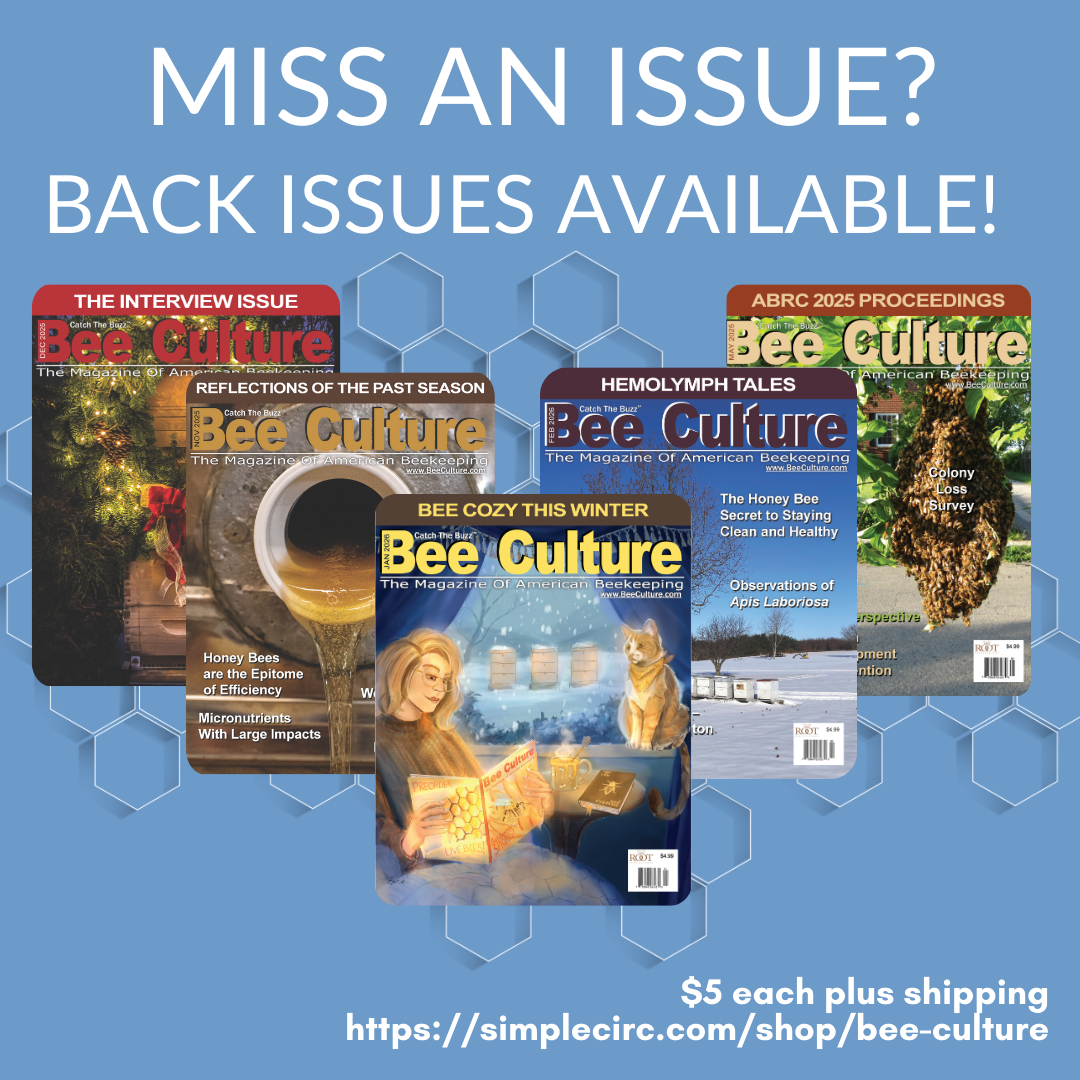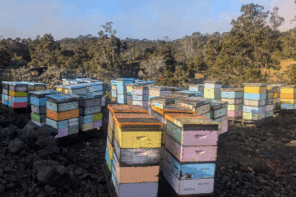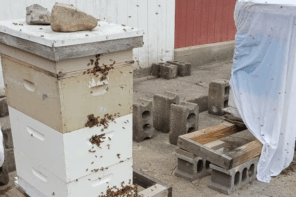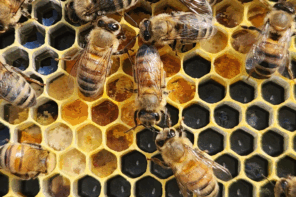 By: James Masucci
By: James Masucci
How many times have you heard the saying, “If you’re not going to do it right, don’t do it at all?” Or, “You never have time to do it right, but you always have time to do it again?” We as beekeepers spend our careers figuring out how to “do it right”. Some years we nail it. Some years are disasters. We know in theory what needs to be done. And, if you are like me, you have a sure-fire plan to make it happen this year. I’ve written about my growing business. I’ve finally grown to where I want to be for a while, I have honey contracts for most of my honey, and I have record nuc sales this year. My plan is going as planned until…
Life gets in the way. This April has been a doozy for me. The birth of my first granddaughter, the death of my father, the death of my father-in-law and the graduation of a close friend. I am sure you’ve all experienced the frustration with a good plan gone awry. There are times I’ve actually said, “Why the am I doing this?” In the beeyard, when you don’t have time to do what you need, the bees are particularly ornery, and you are living in a psychologically trying time, emotions can run high. I find myself acting like a Cubs fan in September (sorry Chicago, I’m from St. Louis), “wait ‘til next year.”
Then I realized, I seem to say “wait ‘til next year” every year. There’s the challenge of growing a bee business, of course. But then, there is life. As much as we may think we want to spend 24/7 with our bees, we don’t. For if all we did was keep our bees, we would have very lonely lives indeed. We need to remember that in this business, the bees are the stars. We just play supporting roles.
To get through the conflict between life and beekeeping, we need to have two sets of priorities. The first are the priorities to get you through the long-haul. What do you value in life? Family, friends, bees. Having these priorities (whatever is right for you), helps make what seems like a tough decision easier. You may not like the decision, but knowing it’s the right decision makes it easier to accept. It may cost you some honey, or maybe some colonies, but you are better off in the long run. Your priorities are important to you and those around you and taking care of them increases your quality of life in the long run.
The second set of priorities helps you deal with not having enough time for your bees. These are bee driven and business driven priorities. What do the bees NEED to get through this. Bees know what they are doing. So, when we can’t follow our plan, we can’t make things optimal for the bees, we must provide what they NEED. Yes, there is a difference. What do bees need to be healthy? Proper pest/pathogen management, proper space, proper nutrition and proper age distribution of bees with a good laying queen. It’s up to you, based on the time of year and what management you’ve already done, to focus on the right priority when life takes you away from your bees. Focus on minimizing damage and allowing the bees to do what they do best.
As an example, here is what I did. I had just finished splitting. I had a week to prepare my bees for my trip to my son and daughter-in-law’s house to meet my new granddaughter. Then I got the call from my mom, dad was dying. I wanted to feed my bees once more, I had queen checks to do, I had mite treatments I wanted to put on and I feared an early black locust nectar flow. My parents were 1,000 miles away. My wife, daughter and I were there in 12 hours. I got to say goodbye to my dad, I got to comfort my mom. Two days after my dad died, my father-in-law died. I got to say goodbye to him, too. We were there 10 days. While I was gone, the bees did what they do. When I got back, I had three days to put everything in order before we left to meet our granddaughter and help out her new parents. This is where the second set of priorities came into play. Wednesday: queen checks, mite treatments, super. Thursday: Take care of my nucs, deliver honey and nucs to customers. Friday: queen checks and super (no time for mite treatments). I got to all but about 50 hives (~25%) then left for another eight days. Black locust came into full bloom. I got a call about one of the hives I didn’t get to, swarming. I have no idea what I will find when I get back. It’s frustrating. It’s not part of the plan. Life got in the way. But I wouldn’t have changed any decision. I said goodbye to two dear friends and hello to a new one. Live life, the bees will be fine.









